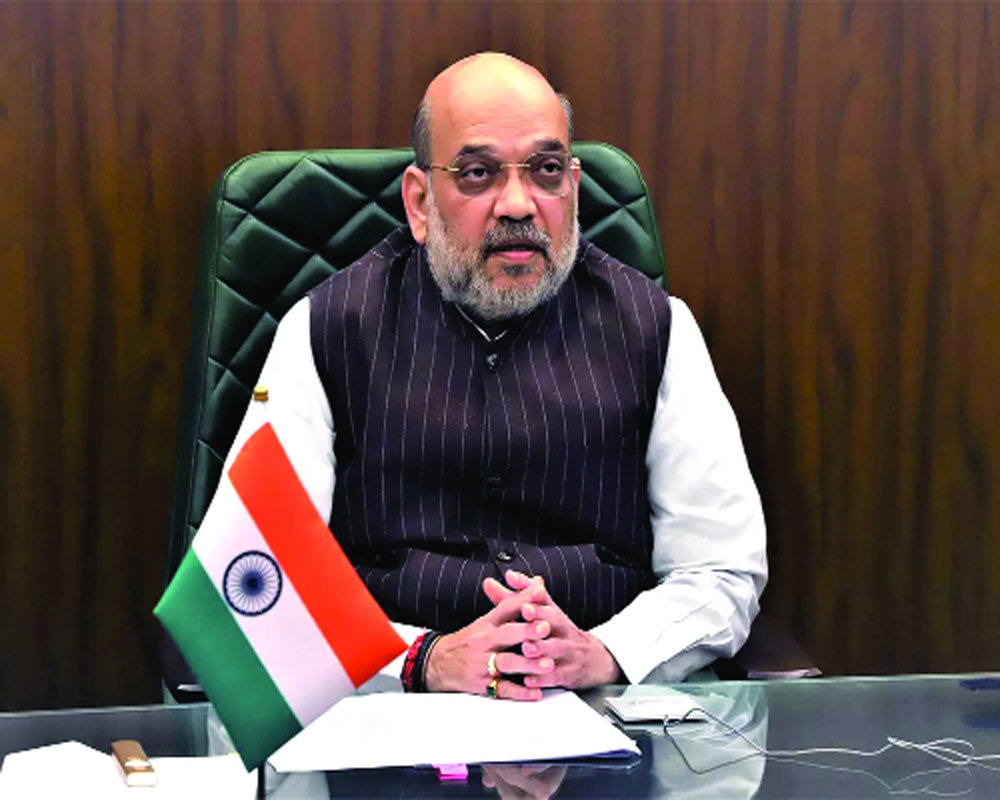The Govt is on guard against terror acts in J&K in the wake of the Taliban takeover
The Union Government is reviewing the security situation in Jammu and Kashmir in light of the Taliban’s ascent to power in Afghanistan. The Indian concern relates to the fact that the Taliban have not assured the world community that they are severing their links with terrorist groups like the al-Qaeda and will not give shelter to Pakistan-based terror groups inimical to India like the Lashkar-e-Taiba and Jaish-e-Mohammad. The rise of the Taliban to power could embolden these groups to think of sending their fighters into Kashmir for carrying out violent acts. The fear is genuine. The Home Minister is at present involved in tightening the security grid in the region. How come the terrorists can enter India directly from Afghanistan? There are many who may not be aware that India, theoretically, does share a border with that country. India shares a land border with seven neighbours and that includes a 106-km-long ‘border’ with Afghanistan. The ‘border’ abuts the Wakhan Corridor in Afghanistan’s Badakshan province. It separates Afghanistan from Gilgit Baltistan in Pakistan-occupied Kashmir. India has always asserted its right over PoK. Indian maps show that region as part of India. That is how India shares a border with Afghanistan. This shows how strategically placed Gilgit Baltistan is from the Indian security perspective. If India gets access to it, a trade route can be opened with Afghanistan, bypassing Pakistan.
It may also be mentioned that Afghanistan’s border with China is also in this region. It is a 91-km-long stretch at the end of the Wakhan Corridor, beginning at Gilgit Baltistan and ending at the tri-point where Afghanistan, China and Tajikistan meet. No less a person than Home Minister Amit Shah told the Lok Sabha in his 2019 address during the debate on the Citizenship (Amendment) Bill, 2019, that India shares a border with Afghanistan. With terrorists or their sponsors, nothing is far-fetched and, in this context, the Kashmir security review is necessary. It is not that mercenaries belonging to the Taliban will try to enter Kashmir. It is that Pakistan may take advantage of the situation in Afghanistan and the absence of the United States troops to encourage the terror groups patronised by it to try to enter Kashmir through Afghan territory. It could also give a fillip to terrorist groups operating from Pakistan to make fresh bids to infiltrate into Kashmir. The security review, thus, is a strategic way of telling Pakistan that India has a grip over the situation on its side of the border. The fact remains that after the Taliban takeover, the Kashmir issue has found new resonance. The Taliban have said they have a right to raise their voice for Kashmiri Muslims. The al-Qaeda has also issued a call for the liberation of Kashmir. These are not friendly overtures by any stretch of imagination and India must not allow any of these groups or Pakistan to pursue an aggressive strategy on Kashmir even if encouraged by the Afghan situation.


























